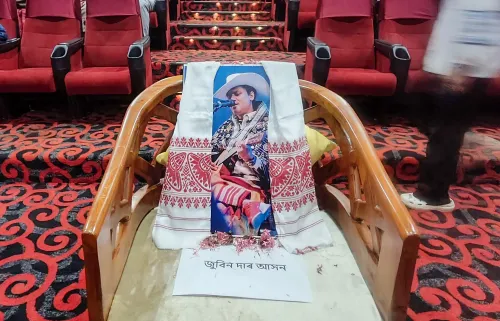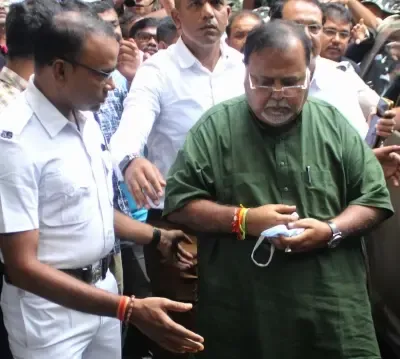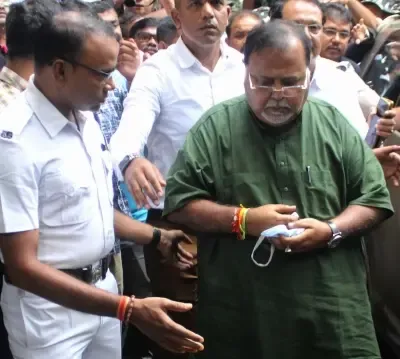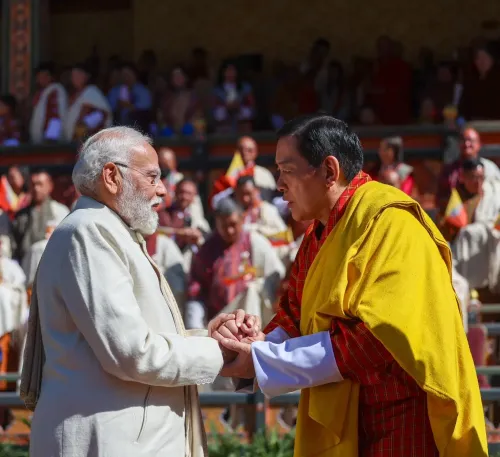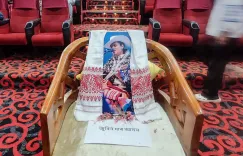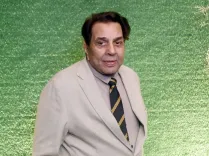Did Rajnath Singh Criticize UPA for Its 26/11 Response and Sharm-el-Sheikh Agreement?

Synopsis
Key Takeaways
- Rajnath Singh strongly critiques the UPA over its handling of India-Pakistan relations.
- The Sharm-el-Sheikh agreement is described as a strategic blunder.
- Singh emphasizes the need for decisive action against terrorism.
- The former NDA government is praised for its hardline approach.
- International diplomatic failures post-26/11 are highlighted.
New Delhi, July 28 (NationPress) Defence Minister Rajnath Singh delivered a harsh critique of the Congress-led United Progressive Alliance (UPA) regarding its management of India-Pakistan relations following the 26/11 Mumbai terrorist attacks, labeling it a significant blunder during the 2009 Sharm-el-Sheikh agreement.
In his address to the Lok Sabha on Monday, Singh stated, "In 2009, the then-government committed an error with the Sharm-el-Sheikh agreement."
He referenced the joint statement released on July 16, 2009, post a meeting between then Prime Minister Manmohan Singh and Pakistan’s Prime Minister Syed Yusuf Raza Gilani during the NAM Summit in Sharm-el-Sheikh.
Defence Minister Rajnath Singh initiated the discussion on Operation Sindoor in the Lok Sabha.
Singh pointed out that the agreement undermined India’s previously firm stance on cross-border terrorism. "This weakened the commitment that Pakistan would not use its territory for terrorism," he remarked, contrasting it with the more assertive approach taken by the former BJP-led NDA government under Prime Minister Atal Bihari Vajpayee.
Singh emphasized that Vajpayee had clearly stated that any dialogue with Pakistan would depend on a commitment to cease terrorism originating from its land.
He further criticized the UPA for not seizing the international momentum following the 26/11 attacks, accusing the Congress-led government of compromising “India's strategic positioning” by not responding robustly to the Mumbai terror attack that claimed over 170 lives.
Quoting from former President and UPA’s External Affairs Minister Pranab Mukherjee’s memoir, ‘The Coalition Years’, Singh recounted: "Mukherjee noted that during the Mumbai attacks, India had evidence linking the terrorists to Karachi port. The international community did not accept Pakistan’s claim of ‘non-state actors’. He mentioned that amidst intense Cabinet debates, there was a call for military intervention which I turned down."
The Defence Minister also cited a senior Indian Foreign Service officer’s account of a high-level meeting that occurred immediately after the Mumbai attacks.
According to Singh, Foreign Secretary Shivshankar Menon had suggested a cruise missile strike on the Lashkar-e-Toiba headquarters in Muridke, Pakistan.
Singh described: "Upon hearing this, Mukherjee removed his glasses, cleaned them, and thanked all the officers before concluding the meeting."
Rajnath Singh contended that such indecisiveness conveyed the wrong message to Pakistan. He contrasted the UPA's approach with the NDA government’s decisive retaliation following the Uri and Pulwama attacks, asserting: "If the government back then had taken prompt and strong actions, like the 2016 surgical strike and the 2019 airstrike, Pakistan’s strategic calculations might have changed. A robust and decisive action could have served as a significant deterrent for Pakistan and its military-backed terrorist groups."
He further criticized the UPA's international diplomatic repercussions, pointing out the absence of strong global condemnation following the 26/11 attacks.
"If you examine the BRICS summit documents after the incident, there is no mention of the Mumbai terrorist attacks anywhere," Singh remarked, suggesting a lost chance to isolate Pakistan on the global platform.

